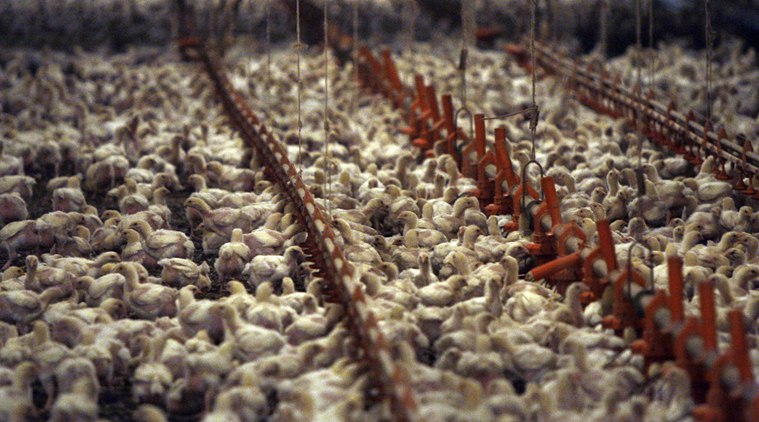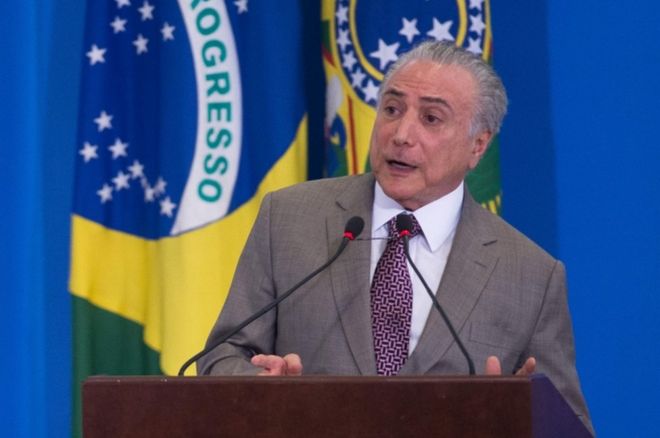
Russia warned it was edging closer to retaliation against Washington after the House of Representatives backed new U.S. sanctions on Moscow, while the European Union said the move might affect its energy security and it stood ready to act too.
The lower house of the U.S. Congress overwhelmingly voted to impose new sanctions on Moscow on Tuesday and to force President Donald Trump to obtain lawmakers' permission before easing any punitive measures on Russia.
"This is rather sad news from the point of view of Russia-U.S. ties," said Dmitry Peskov, a Kremlin spokesman. "We are talking about an extremely unfriendly act."
He said President Vladimir Putin would decide if and how Moscow would retaliate once the fresh sanctions became law, while Russia's deputy foreign minister warned the move was taking bilateral relations into uncharted waters, killing off any hope of improving them in the near future.
The sanctions still need to be approved by the Senate and by President Donald Trump himself. But Bob Corker, chairman of the U.S. Senate Foreign Relations Committee, said on Wednesday the measure was likely to become law "very, very soon".
Trump, who has found his presidency embroiled in a distracting row over his associates' alleged ties to Moscow and is on the defensive over accusations Moscow helped him win election last year, has said he is keen to try to mend relations with Russia that are languishing at a post-Cold War low.
But most White House watchers believe Trump will reluctantly sign off on the new sanctions, given deep support for them among U.S. lawmakers, including fellow Republicans, and his desire to avoid being accused of being soft on Moscow.
The U.S. sanctions demarche has rattled Russia, which fears that its economy, weakened by a 2014 batch of Western sanctions imposed over its role in the Ukraine crisis, will now find it harder to recover and grow. Foreign investors could be scared off and the original sanctions would remain in place longer.
For its part, the European Union frets the new U.S. move could throw up obstacles to its firms doing business with Russia and threaten the bloc's energy supply lines.
The Kremlin, which flatly denies interfering in the 2016 U.S. presidential election to the benefit of Trump - a charge that helped propel the House action - says Washington is in the grip of what it calls anti-Russian hysteria.
Moscow has called the new sanctions "an extremely unfriendly step" that would hurt bilateral ties and international trade.
Peskov complained of a blow against international law. But he said Moscow would wait until the sanctions became law before fully analyzing them and deciding how to respond.
The new sanctions legislation risks sinking Trump's own agenda to improve ties with Moscow altogether.
"Uncharted Territory"
Russian Deputy Foreign Minister Sergei Ryabkov told the Interfax news agency that relations were now entering "uncharted territory in a political and diplomatic sense".
Moscow had initially hoped that Trump, who made upbeat statements about Putin before winning the White House, would work to repair the U.S.-Russia relationship.
But it has watched with frustration as the vote-meddling allegations have killed off hopes of any detente despite what it considered a positive first meeting between Trump and Putin at a G20 meeting in Germany earlier this month.
Ryabkov said the latest sanctions step in Congress left no room to improve relations in the near future.
He also made clear Moscow was growing tired of showing restraint over what it sees as a series of diplomatic slights.
The Foreign Ministry said earlier this month that too many American spies were operating in Russia under diplomatic cover and that it might expel some of them to retaliate for the expulsion of 35 Russian diplomats last year by then-President Barack Obama's administration.
That warning reflected rising frustration in Moscow over the Trump administration's refusal to hand back two Russian diplomatic compounds seized by the Obama administration at the same time as the diplomats were sent home.
Putin opted not to retaliate immediately at the time, saying he would wait to see what the new Trump administration would do.
However, many Russian politicians increasingly believe Trump's political foes and Congress have successfully squeezed the U.S. president's room for maneuver on Russia to almost nil and they have nothing to lose by retaliating themselves.
Konstantin Kosachyov, who heads the foreign relations committee in Russia's upper house of parliament, urged the Kremlin to devise a "painful" response and said Russian lawmakers had already begun to discuss how best to hit back.
European Union Anger
In Brussels, European Commission President Jean-Claude Juncker said the EU was ready to act "within a matter of days" if it felt the new U.S. sanctions undermined the bloc's energy security.
Brussels fears the new sanctions will damage European firms and oil and gas projects on which the EU is dependent.
"The U.S. bill could have unintended unilateral effects that impact the EU's energy security interests," Juncker said in a statement after a meeting of European Commissioners.
"This is why the Commission concluded today that if our concerns are not taken into account sufficiently, we stand ready to act appropriately within a matter of days. America first cannot mean that Europe's interests come last."
The Commission said the U.S. House bill demonstrated that a number of EU concerns had been taken into account, but did envisage sanctions on any company, including European, that worked on Russian energy export pipelines.
That, it said, could affect maintenance and upgrades of pipelines in Russia feeding natural gas to Europe via Ukraine, or projects crucial to the EU's energy diversification goals, such as the Baltic Liquefied Natural Gas project.
"The EU is fully committed to the Russia sanctions regime. However, G7 unity on sanctions and close coordination among allies are at the heart of ensuring the full implementation of the Minsk Agreements. This is a core objective that the EU and the US share," Juncker said.
The 2015 deal mandated a ceasefire between Ukrainian government forces and pro-Russian separatists, a pullback of heavy weapons and elections in rebel-held territory. But little has been done, and sporadic fighting continues.
The European Union, the Commission also said, was raising its concerns via "all diplomatic channels".
Source: Reuters












/i.s3.glbimg.com/v1/AUTH_59edd422c0c84a879bd37670ae4f538a/internal_photos/bs/2017/X/s/WEBpFkRdaInTaxxiB6mA/temer.jpg)

